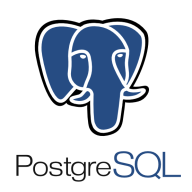

PostgreSQL and Firebird SQL are competitors in the open-source database management system market. PostgreSQL seems to have the upper hand due to its extensive features and scalability, making it ideal for complex applications.
Features: PostgreSQL offers a robust feature set, supporting complex queries, stored procedures, and data types, making it suitable for diverse applications. It is fully ACID-compliant and supports asynchronous commit, providing reliability and cost-effectiveness. Firebird SQL is appreciated for its lightweight nature and ease of deployment, making it a good choice for simpler database needs but lacking PostgreSQL's wide feature range.
Room for Improvement: PostgreSQL can improve read-only query performance, SQL operation efficiency, and storage engine variety. Firebird SQL could benefit from enhanced performance with large databases, better integration features, and improved database sharing tools.
Ease of Deployment and Customer Service: PostgreSQL supports diverse deployment strategies including on-premises, cloud, and hybrid models, offering robust community support but lacking formal customer service. Firebird SQL is easy to deploy and best suited to on-premises setups, though it may need more comprehensive support for larger operations.
Pricing and ROI: Both PostgreSQL and Firebird SQL provide high ROI as they are open-source and incur no licensing fees. PostgreSQL might require additional costs for third-party plugins or support, whereas Firebird SQL offers straightforward savings with its public domain model.
| Product | Market Share (%) |
|---|---|
| PostgreSQL | 15.2% |
| Firebird SQL | 13.6% |
| Other | 71.2% |
| Company Size | Count |
|---|---|
| Small Business | 11 |
| Midsize Enterprise | 3 |
| Company Size | Count |
|---|---|
| Small Business | 57 |
| Midsize Enterprise | 26 |
| Large Enterprise | 46 |
Firebird SQL is an open-source, cross-platform relational database management system that offers an enterprise-level database solution. The solution is designed to be highly secure, efficient, and compatible with various platforms and programming languages. Firebird can operate in both embedded and server modes.
Firebird is an open-source project with an active community of developers and users. It is released under the Initial Developer's Public License (IDPL) and the InterBase Public License, allowing for free use, modification, and distribution.
The Firebird solution requires minimal configuration and its architecture allows it to efficiently handle databases ranging from a few KB to multiple terabytes. It is available for various operating systems, including Windows, Linux, macOS, and several Unix-like platforms.
What are the key features of Firebird SQL?
As part of being a commonly used open-sourced solution, Firebird boasts a vibrant community of developers and users. The community provides extensive documentation, third-party tools, and active forums for support. Businesses can also opt for professional support services offered by third-party vendors for added assurance.
To summarize, Firebird SQL is a robust, scalable, and cost-effective database solution suitable for a wide range of applications and business sizes. Its comprehensive SQL support, security features, and cross-platform compatibility, combined with the active community support, make it a compelling choice for businesses looking to leverage the power of open-source software without compromising on performance or security.
PostgreSQL is a versatile and reliable database management system commonly used for web development, data analysis, and building scalable databases.
It offers advanced features like indexing, replication, and transaction management. Users appreciate its flexibility, performance, and ability to handle large amounts of data efficiently. Its robustness, scalability, and support for complex queries make it highly valuable.
Additionally, PostgreSQL's extensibility, flexibility, community support, and frequent updates contribute to its ongoing improvement and stability.
We monitor all Open Source Databases reviews to prevent fraudulent reviews and keep review quality high. We do not post reviews by company employees or direct competitors. We validate each review for authenticity via cross-reference with LinkedIn, and personal follow-up with the reviewer when necessary.